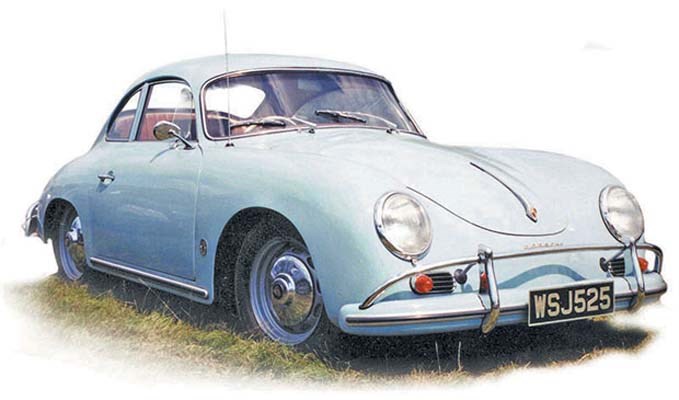You know that Porsche is not just the name of a car company, but also the name of a family legacy. And you likely know founder Ferdinand Porsche.
But this a story about the other "Mr. Porsche," the one you have probably never heard about, the one who made it flourish. Not the one who gets all the accolades, but the one who created all the excitement.
Although the company that carries his name was born some 17 years before he was actively involved, Ferry Porsche is the one who steered it into the fast lane.
On April 25, 1931, the Porsche company was formed as "designers and consultants for land, sea and air vehicles." But it was Ferdinand Anton Ernst, nicknamed "Ferry," the son of automotive genius Ferdinand Porsche, who made Porsche the sports car monolith it is today.
With a few smooth lines and an even smoother collection of engines, Ferry Porsche generated excitement during a time when Germany desperately needed a jump-start.
Ferry gave the post-war Germans something to dream about. He gave them Porsche: the symbol of speed and superiority that continues to this day.
Ferry's place in history was only natural. When he was born in Austria, on Sept. 19, 1909, his father was already technical director of the Austro-Daimler Company.
Ferry breathed machinery. At age 12, he was allowed to drive racecars while closely working with his father to learn the automotive craft.
Shortly after the family moved to Stuttgart in 1923, Ferry began working as a designer in his father's own company. Their first contract, a 2.0-litre-engined car for the Wanderer Company, was designated number 007 to give the impression it was not Porsche's first project.
The success of the vehicle led the Auto Union Company to appoint Ferdinand Porsche as the lead designer on a new racecar. Ferry would do all of the testing on the 16-cylinder supercharged engine until one day his father declared: "I have enough drivers, but only one son."
Ferry stopped testing, but the Porsches were not done. Before the Second World War, they began work on another project that would prove equally as incredible: the Volkswagen Beetle.
But the war took away Ferry's father - captured by the French army - and most of the business.
Ferry left Stuttgart for Austria and, with the help of a few colleagues, started over in 1945 with repair jobs and farm machinery. After a few contracts in Italy, Ferry began working on his own sports car, known appropriately as the Porsche.
Ferry's objective was simple. He wanted to build a lightweight, compact car that offered unmatched braking and handling.
"If I build a car that gives me satisfaction, then there must be others with the same sort of dreams who would be prepared to buy such a car," he once said.
In post-war Germany, the country was in ruins and the economy was in shambles. The Germans needed a new identity. Ferry helped lead them in a new direction.
After less than three years of development, Ferry finished his car - named the Porsche 356 - which debuted in 1948.
With an air-cooled, rear-mounted, four-cylinder engine borrowed from the Volkswagen Beetle, it would be the ultimate launching pad. A total of 52 units were built before the company returned to Stuttgart.
For many, it defined a change in German auto design and performance.
Porsche sold 78,000 356 models by the time production ended in 1965. But what it would lead to would prove even more telling.
When Porsche ended the 356, an even better vehicle was in the spotlight: the 911. With amazing performance and timeless styling - penned by Ferry's son, Ferdinand Alexander - the 911 defined what it meant to be Porsche.
The 911 Turbo, launched in 1974, was one of the world's first turbocharged sports car and the brand image continued to flourish with victory after victory on the racetracks. Today, it's a model that's coveted by sports-car purists and feared by competitors.
Mostly, Ferry Porsche demanded a great deal from his engineers, mechanics and drivers. He wanted excellence and he got it.
The Porsche family gave up control of the company in 1972 when Ferry stepped down from the board of directors, but he remained on the company's advisory board, serving as chairman until 1990. He was the board's honourary chairman until his death, at age 88, in 1998 in Austria.
Porsche roared on, a symbol of one man's quest and a lifetime goal fulfilled.
Ferdinand Porsche's son Ferry was responsible for the company's first successful model, the 356.


